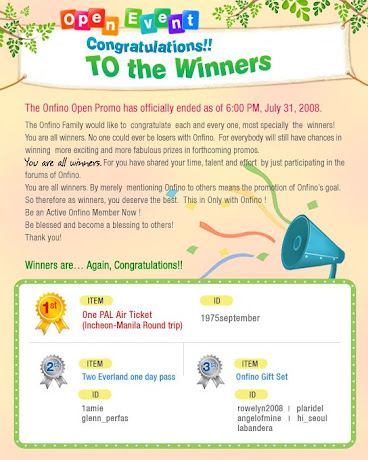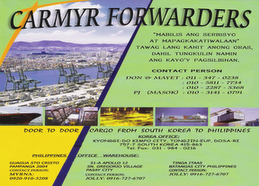Ika-3 Linggo ng Kuwaresma:
Hindi pangkaraniwan sa isang babae noong panahon ni Hesus ang sumalok ng tubig sa isang balon sa katanghaliang tapat. Para sa mga babae noong pananahong iyon, ang pagsalok ng tubig ay sa umaga at sa hapon lang. Marahil ay may itinatago ang babaeng ito kaya’t di niya inalintana ang init ng katanghaliang tapat para maiwasan ang bulung-bulungan ng mga kapitbahay tungkol sa kanya. Sa pag-aakalang nag-iisa siya, malamang na nabigla siya nang makita niyang may isang lalaki sa may balon na hindi niya kilala at hindi tagaroon sa kanila.
Hindi pangkaraniwan sa isang babae noong panahon ni Hesus ang sumalok ng tubig sa isang balon sa katanghaliang tapat. Para sa mga babae noong pananahong iyon, ang pagsalok ng tubig ay sa umaga at sa hapon lang. Marahil ay may itinatago ang babaeng ito kaya’t di niya inalintana ang init ng katanghaliang tapat para maiwasan ang bulung-bulungan ng mga kapitbahay tungkol sa kanya. Sa pag-aakalang nag-iisa siya, malamang na nabigla siya nang makita niyang may isang lalaki sa may balon na hindi niya kilala at hindi tagaroon sa kanila.
Noong panahong iyon at sa kultura ng kanyang lipunan, maituturing na isang malaking kapahangasan ang ginawang pakikipag-usap ng babae kay Hesus. Ayon sa kanilang batas at kaugalian, hindi maaaring makipag-usap ang isang babae sa isang lalaking hindi niya kilala lalo pa nga’t siya’y nag-iisa. Maaari sanang tumakbong paalis ang babae upang maiwasan niya si Hesus. Sa kabutihang palad nagkalakas siya ng loob at naging bukas siya sa pakikipag-usap sa Panginoon. At dahil sa lakas ng loob na ito, natagpuan niya ang Mesiyas. Kung nagpatali siya sa batas at umiwas kay Hesus hindi sana niya makikilala ang Panginoon at Tagapagaligtas na maaaring magbigay sa kanay ng tubig na walang hanggan.
Pinagpala ang Samaritana dahil sa kanyang kapahangasan. Binigyan niya ng puwang si Hesus sa kanyang buhay at hindi niya inalintana kung madadagdagan man ang bulung-bulungan ng iba tungkol sa kanya o kung ano man ang ‘di magandang kahihinatnan ng ginawa niyang iyon. Bunga nito, natagpuan niya ang Mesiyas at nabago ang kanyang buhay.
Gusto rin nating mabago ang ating buhay-gusto nating magpakabuti, gusto nating maging iba, gusto nating maging banal, gusto nating maging mabuting Kristiyano, kapitbahay o kapwa tao. Subalit bakit kaya hindi natin magawa o nahihirapan tayong gawin iyon? Hindi kaya dahil sa tinatakbuhan natin si Kristo-taliwas sa ginawa ng Samaritana na lumapit kay Kristo? Hindi kaya ayaw nating lumapit sa “balon” kung saan maaari nating matagpuan ang Panginoon—sa balon ng kanyang Salita, sa balon ng pananalangin, sa balon ng pagninilay. Handa ba tayong ibigay sa Panginoon ang mga “balde” ng ating mga kahinaan at kakulangan upang punuin niya ang mga ito ng tubig ng kalakasan at kakayahan? O baka naman punung-puno ang ating mga “balde” ng pagmamalaki at pagmamayabang kaya’t hindi niya ito mapalitan ng tubig na papawi sa mas malalim nating mga pagkauhaw magpakailanman.
Madalas na hinahanap natin ang Diyos upang pasunurin siya sa ating gusto sa halip na tayo ang sumunod sa kanyang kalooban. Dahil dito nagiging hilaw ang ating pananampalataya at nagkakasya na lang tayo sa balon ng pansamantalang kaginhawahan na idinudulot ng mundong ating ginagalawan-ang mundo ng materyal na kasiyahan kung saan ang “ako” (sarili) lang ang mahalaga, ang sentro at ang una.
Ang panahon ng Kuwaresma ay nag-aanyaya sa atin na mas lalo pang pagtuunan ng pansin at pagnilayan ang mga simulain ni Kristo. Inaanyayahan tayong pag-ibayuhin pa ang pagsisikap nating matagpuan si Hesus sa mga balon ng buhay-kung saan gusto niyang punuin at pag-apawin ang ating mga sisidlan ng “tubig” na tutugon sa pagka-uhaw natin sa tunay na kahulugan ng buhay sa mundong ito at sa kabila.
~ P. Lordencio D. Honrada ~











